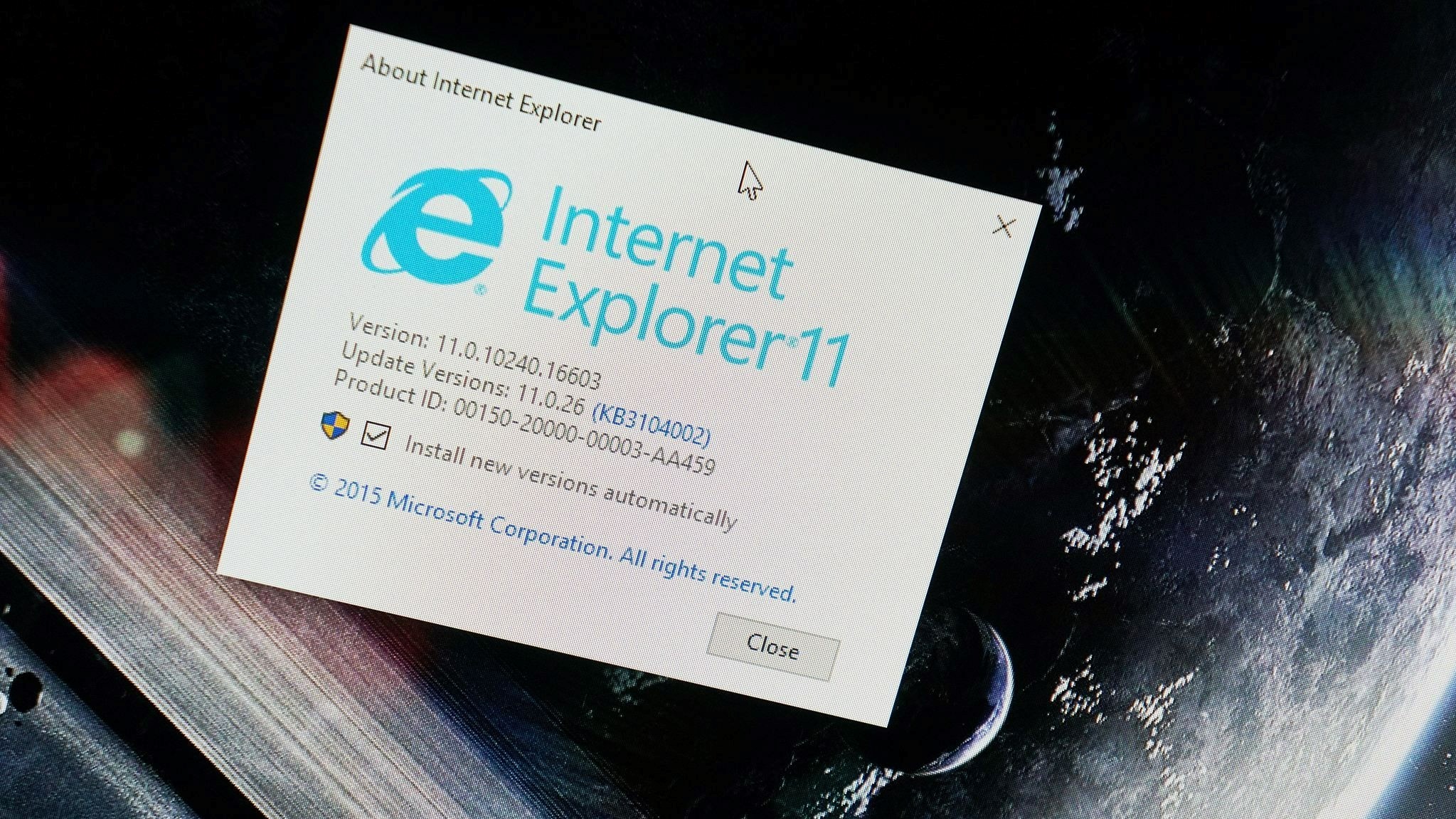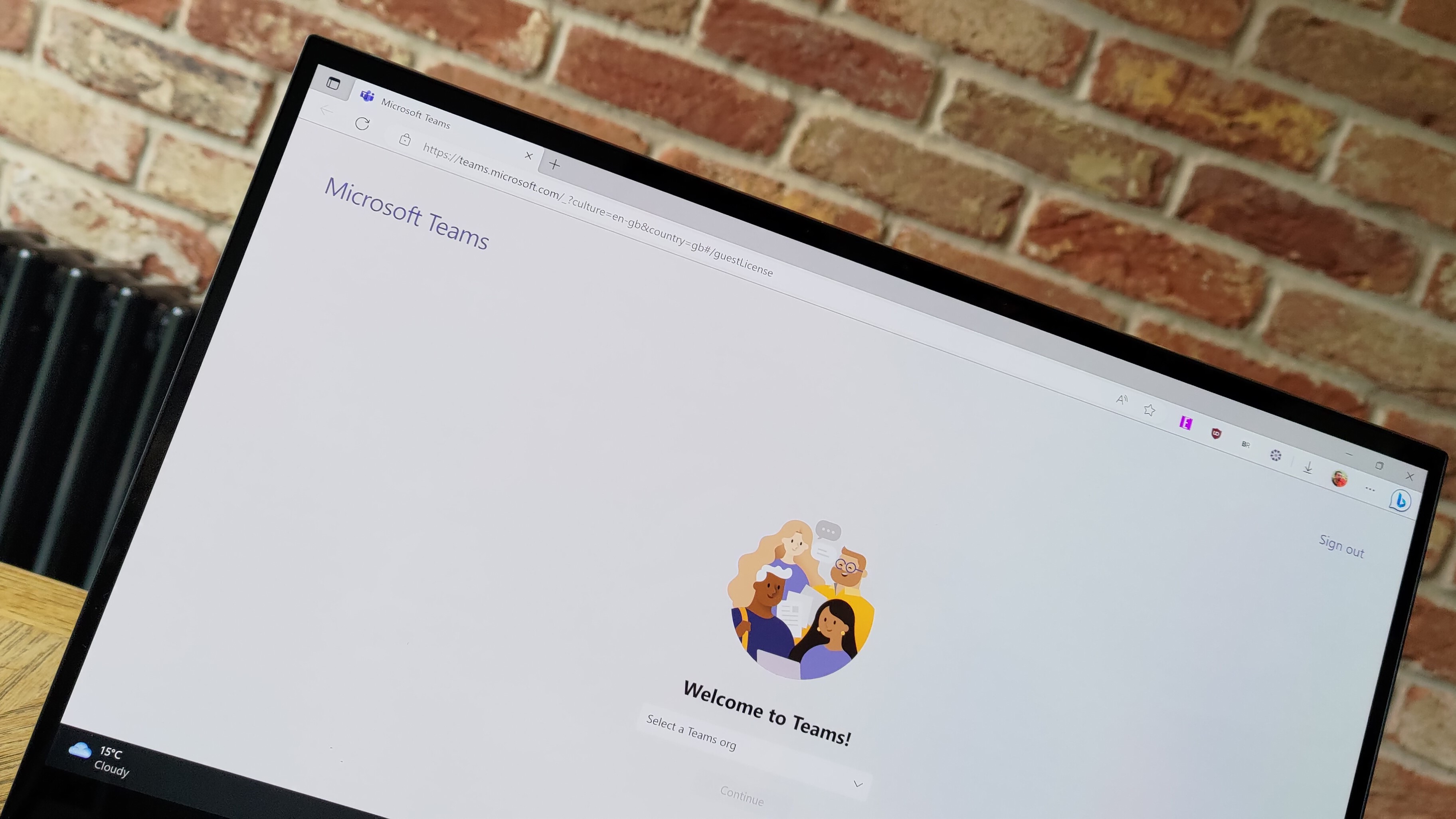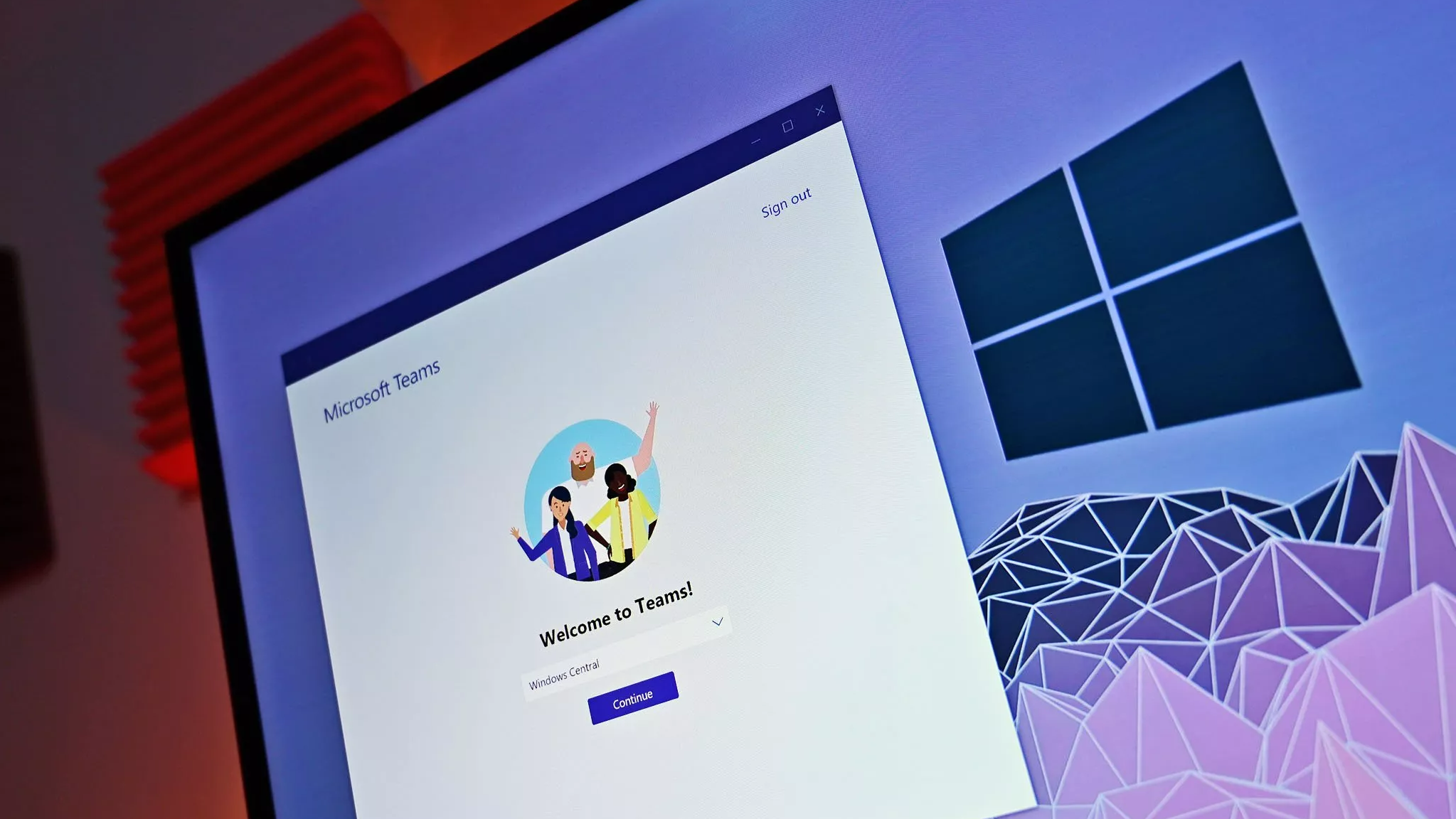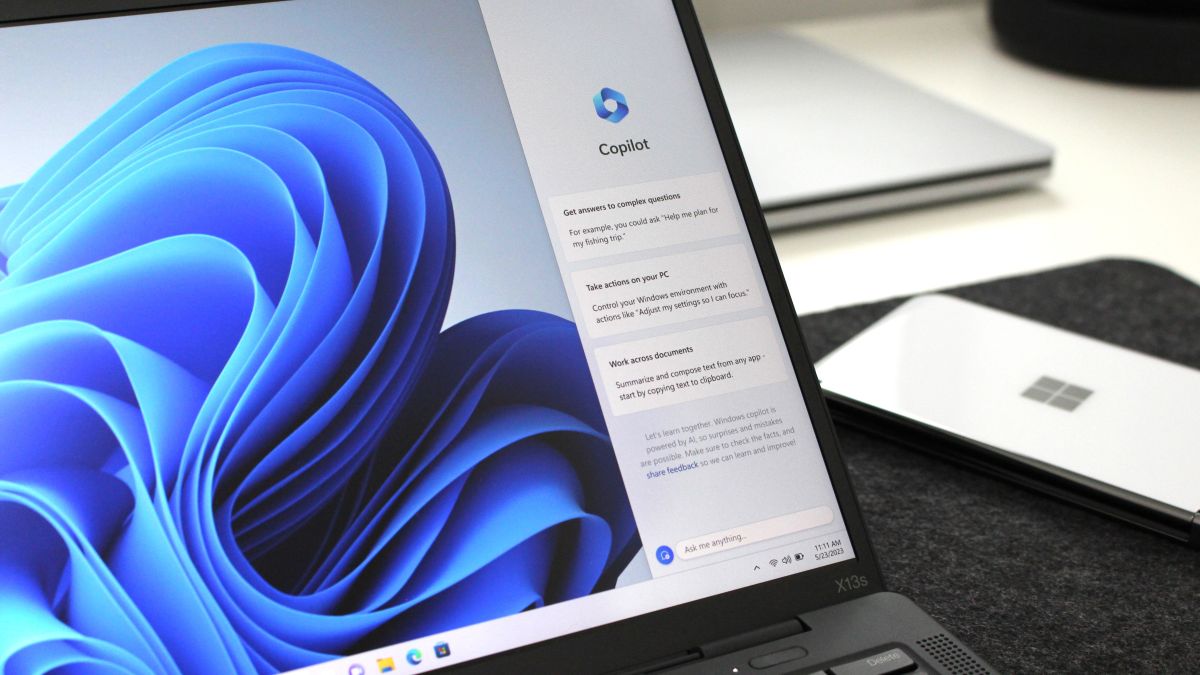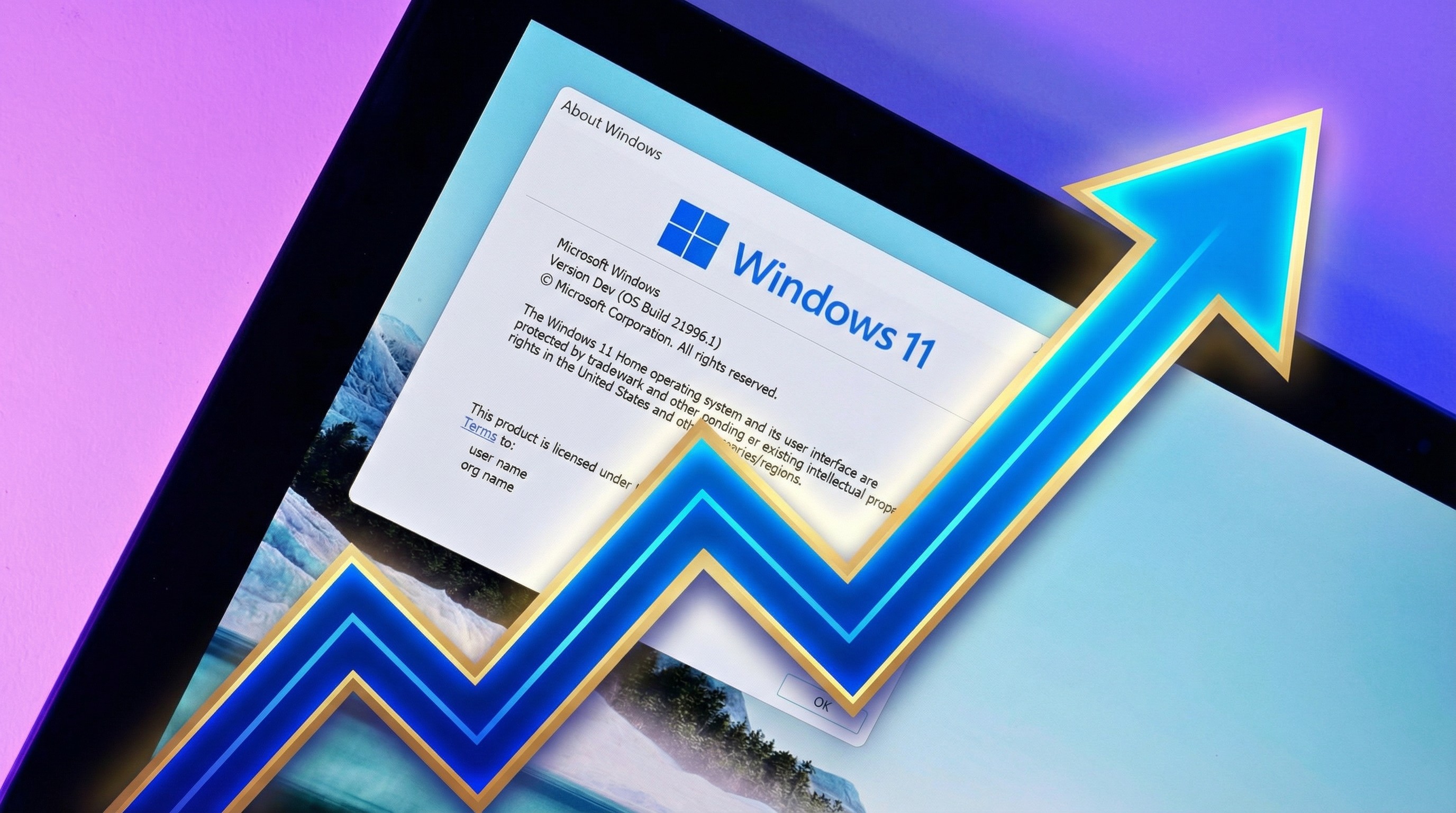Microsoft will keep stifling competition "until the regulators have their foot on their neck," argues Cal Berkeley professor
Professor Weber asks, "is Microsoft reluctantly closing the barn door when all the horses have run away three days ago?"
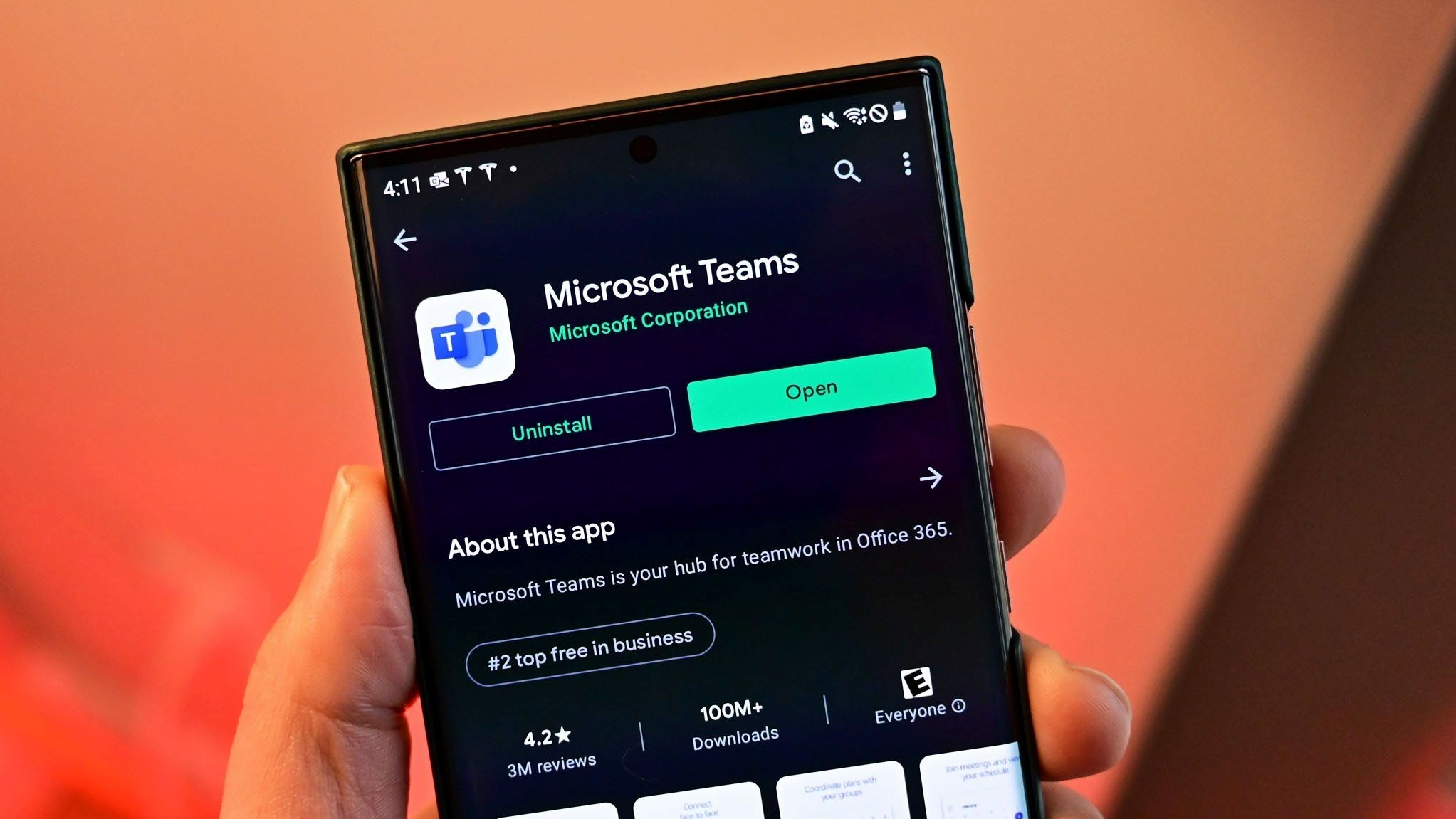
All the latest news, reviews, and guides for Windows and Xbox diehards.
You are now subscribed
Your newsletter sign-up was successful
Microsoft had to debundle Teams from Microsoft 365 last year. The move was made to appease EU regulators and drew criticism for being too little too late. Microsoft then split Teams from Microsoft 365 worldwide amidst antitrust pressure.
Is Microsoft's change of plans an example of trying to shove toothpaste back in the bottle? Has Microsoft gone far enough in creating an equal playing field for competing platforms such as Zoom, Slack, and Google? Did Microsoft use monopolistic practices to convert companies to Teams using dominance in the productivity software space? These questions need answers to predict what the communication sector will look like in five years, so I sat down with Steve Weber to break down Microsoft's past, plans, and get predictions about the future.
Weber is professor of the Graduate School at University of California, Berkeley School of Information. He was a faculty member at Berkeley for 32 years in both political science and the School of Information. He continues to research in his current role.
Microsoft's past with antitrust
Microsoft is no stranger to legal battles, especially when it comes to antitrust cases and laws regarding monopolies. The tech giant's acquisition of Activision Blizzard only went through after a drawn-out legal process involving regulatory bodies from several countries. While Microsoft has been involved in many cases over the years, an example from the 1990s has several parallels to Microsoft's strategy surrounding Teams.
"I'm going to go back to the Internet Explorer days because I think it's almost the iconic example... which was there was this new thing called the browser to help people navigate the World Wide Web and there was a company called Netscape," said Weber.
"And they charged for the browser because it was in a complex piece of software, and Microsoft created a competitive browser and then gave it away for free and performed what I think was indelicately by my friends in the medical field called a 'cashectomy' on Netscape, and basically drove Netscape out of business."
It may seem odd to go back to a situation from over 30 years ago, but Weber explained how the Internet Explorer vs. Netscape competition set the tone for Microsoft.
All the latest news, reviews, and guides for Windows and Xbox diehards.
"It's the iconic piece because I see it as like that's Microsoft Playbook." Weber then related the situation to Teams vs. Zoom.
Antitrust or something else?
Before diving deep into Microsoft's strategies, Weber explained why "antitrust" is not the best term to describe the ongoing Microsoft Teams saga. While antitrust legislation is involved, a different term is more applicable in the eyes of Weber.
"I prefer to use the term competition policy because antitrust is sort of a dated term. It goes back to the late 1800s, early 1900s, when the government was trying to break down these things that were called trusts... Today we would call them big, powerful companies or conglomerates or that sort of thing. So, I think for lay people, [it's best to] think about it in terms of policies that are designed to make sure that we have a competitive marketplace."
While it's technically possible for the U.S. government or other regulatory bodies to break up large companies, that isn't a likely outcome of Microsoft bundling Teams with Microsoft 365. Instead, government agencies are likely to look at if Microsoft unfairly used its monopoly in the productivity space and parleyed it into success in the communication sector.
I have never met a person who says Teams is better than Zoom. Easier to use, works better, better interface... Everybody I've ever talked to prefers Zoom.
Steve Weber
"What we're talking about here is a company that is big enough that it can then leverage its dominance in one place to create anti-competitive effects. And something that people talk about in adjacent markets. What we're what we're talking about here, for example, is if you are big enough and powerful enough in the cloud market or in this case in the office suite applications."
Microsoft's strategy surrounding Teams is not under the same umbrella as what most people think of when you mention a monopoly, according to Weber.
"Traditional competition policy is simply about reducing monopoly power, where a company gets so big that it dominates a market and has pricing power that it can use to harm consumers. That's not what we're talking about here."
The rapid growth of Microsoft Teams
Microsoft Teams established itself as a major communication platform right as the world was forced to work and learn remotely due to the global pandemic. Microsoft had to rush a few things a bit, but ultimately Teams was ready and available to handle remote communication at a time of unprecedented demand. Of course, there were other players such as Zoom and Google Meet, so Microsoft had to find a way to get people to use Teams.
What Microsoft did was bundle Teams with Microsoft 365. The bundling meant that organizations that already paid for Microsoft 365 wouldn't have to spend any extra money to get Teams. The strategy shifted the comparison from Teams vs. Zoom to Teams (at no added cost) vs Zoom (for an additional fee). It was no longer about which communication platform was better. It was about which was the better bargain.
"I have never met a person who says Teams is better than Zoom. Easier to use, works better, better interface... Everybody I've ever talked to prefers Zoom," said Weber.
"But if you look at what happened with the market when Microsoft started bundling Teams with this Office software, I've seen many friends who work in large enterprises that have [been] pushed onto Teams [by] their IT department because they don't want to pay for Zoom separately even though it's a better product."
Microsoft has since debundled Teams from Microsoft 365, a change which took effect on April 1, 2024. Existing customers will be able to keep their current licensing deal that bundles Teams and Microsoft 365, but new customers will have to pay for Teams as a standalone app.
Why can't Microsoft do this?
A natural question many will ask about this situation is "why can't Microsoft bundle its services together?" After all, capitalism is about competing for customers. If Microsoft can create a better package than Google, Slack, or other companies, isn't it on the other companies to step up? Why is it Microsoft's responsibility to worsen its offering to promote competition?
Weber dove into how regulators and policy experts view the situation:
"So, it's a really good question. It's a question that competition policy experts always will get asked in the court. The government complaint against Apple asks exactly the same question. Why should Apple be forced to, for example, create an iMessage product for the Android phone?
I think what competition policy experts would argue on this is that when you have a dominant position in a market like Office 365 does, for productivity suite software, the responsibility is different than if you don't have a dominant position in the market.... The logic behind that is that if you don't have a responsibility to open and make you know that kind of choice or say enable that choice, then it's just too easy to leverage that dominance in the productivity suite market into video conferencing [and other markets]."
It comes back to leveraging pre-existing dominance. Microsoft has reached a point where its Office software is so dominant that anything bundled with Office becomes a no-brainer.
To take the situation to hyperbole, Microsoft could bundle things tangentially related to Office to create the best bargain. For example, if Microsoft rented an office building for free to anyone that used Microsoft 365, that would create an unfair advantage for the hypothetical Microsoft-owned commercial real estate sector.
Too little too late?
The fear of regulators and Microsoft's competitors is that Microsoft could create a market in which the tech giant obtained dominance in video conferencing before debundling Teams from Microsoft 365. The company could then leverage its position to change the terms of Teams or just sit happily on its throne of its communication kingdom.
Have you ever tried to get a group of friends to switch from WhatsApp to Telegram or another messaging service? My guess is you ran into friction. Now imagine that at enterprise scale when thousands of messages and threads are involved. Companies can't just swap from Teams to Zoom or Google Meet overnight.
The argument is that Microsoft leveraged its Office dominance to gain a foothold in communications that can't be undone even through unbundling.
The analogy would be is Microsoft reluctantly closing the barn door when all the horses have run away three days ago?
Steve Weber
Microsoft Teams is no longer included with Microsoft 365. Organizations have to subscribe to and install Teams separately. But that change only came after the EU stepped in, and the competitors filed complaints.
Did Microsoft wait to debundle until it has already leveraged the dominance of Microsoft 365 to build the user base of Teams? Is Teams interoperable with other communication platforms to the same extent as it connects to Microsoft 365? Does the fact that many organizations will get to keep previous bundled pricing make the move empty?
Weber argues that Microsoft's own actions prove that Teams being bundled with Office is part of a business strategy, and that changing plans to appease the EU and other regulators weakens some arguments Microsoft could make.
"They make it very clear by their decision to unbundle it in one place... it's a business model decision that is determined not by what's good for the market, not by what customers need, but by the level of regulatory pressure that they feel to act and which they want to relieve before they get, you know, sued by the FTC or the DOJ...
But ultimately when they do it in one place... it's hard for them to argue, for example, that there is technological complexity that that gets in the way of changing that."
Weber argues that part of Microsoft's strategy was to stick with its bundling plan until forced to do otherwise, and that by the time regulators stepped in the tech giant would already have made its mark.
"Until the regulators have their foot on their neck, they're going to hold on to that business strategy for as long as they possibly can," said Weber.
"Kicking the can down the road, then they can keep doing this again and again and again. And that's why I feel people like me are trying to stand up and say we need to find better ways to stop this sooner rather; than like trying to close the barn door three days after the horses run away."
Will Microsoft change?
Microsoft is a very different company than it was in the 1990s, but Weber argues some business strategies are still in place from before the turn of the century. Microsoft is dominant in several sectors, which creates a risk of anti-competitive behavior being effective. We've seen the EU and Microsoft competitors argue that's exactly what happened with Teams.
Will Microsoft use a similar strategy with other emerging technologies? It seems likely, as the tech giant is rolling AI and Copilot into Windows 11 and Microsoft 365. Perhaps Microsoft will have to debundle Copilot from some of its other services in the future. There's also a chance regulators will view AI differently than communication software.

Sean Endicott is a news writer and apps editor for Windows Central with 11+ years of experience. A Nottingham Trent journalism graduate, Sean has covered the industry’s arc from the Lumia era to the launch of Windows 11 and generative AI. Having started at Thrifter, he uses his expertise in price tracking to help readers find genuine hardware value.
Beyond tech news, Sean is a UK sports media pioneer. In 2017, he became one of the first to stream via smartphone and is an expert in AP Capture systems. A tech-forward coach, he was named 2024 BAFA Youth Coach of the Year. He is focused on using technology—from AI to Clipchamp—to gain a practical edge.
